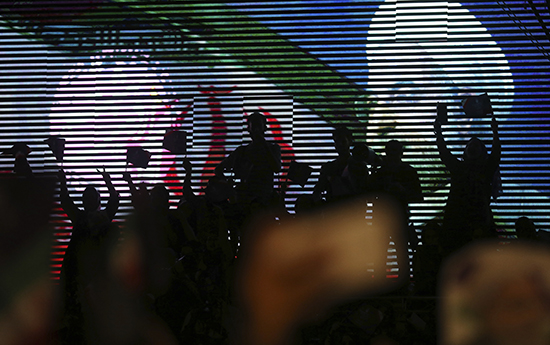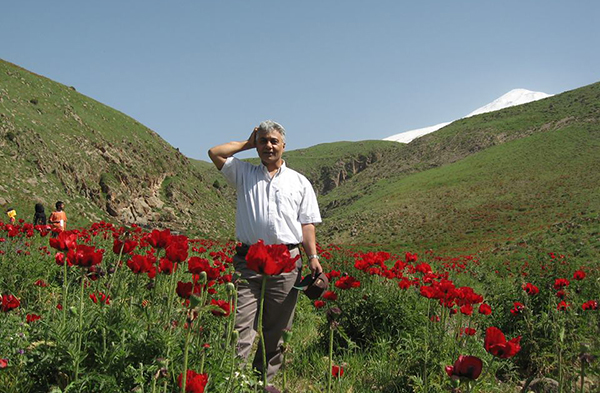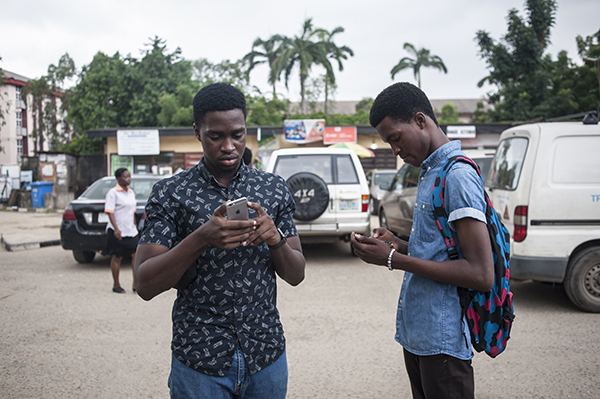
Iran targets Telegram app as it seeks to control news ahead of May election
Iran has a history of cracking down on the independent press ahead of elections, with authorities arresting journalists and forcing reformist outlets to shut down. As Iranians prepare to vote in presidential and city council elections on May 19, authorities have turned their attention to Telegram, arresting several channel administrators for the app.

Iran frees Issa Saharkhiz then sentences him to one year in jail
New York, April 28, 2017–Iranian authorities should immediately drop all charges against freelance journalist Issa Saharkhiz, who was sentenced yesterday to one year in prison, the Committee to Protect Journalists said today. The sentence was handed down the day after Saharkhiz was released from jail on a separate charge, according to the journalist’s son and…
Fighting for the Truth
Journalists have a huge amount of work to do By Christiane Amanpour Never in a million years did I expect to find myself appealing for the freedom and safety of American journalists at home. Despite the hostile rhetoric of the U.S. presidential campaign, I hoped that after becoming president-elect, Donald Trump would change his approach…
CPJ Safety Advisory: Covering the US presidential inauguration and protests
The inauguration of U.S. President-elect Donald Trump on January 20, 2017, is expected to draw thousands of protesters to Washington, D.C. Journalists from across the United States and the world will cover the ceremony and the protests planned around it. The Emergencies Response Team (ERT) at the Committee to Protect Journalists has issued the following…
Ghana police threaten social media blackout during polls
Ghanaian Police Inspector General John Kudalor on May 26, 2016, told reporters in the capital Accra that police were considering blocking Facebook, Twitter and all other social media during general elections scheduled to be held in December 7, according to media reports.
Nigeria detains 13 journalists, bloggers, and media workers
Abuja, Nigeria, September 29, 2016 — Nigerian authorities should immediately release at least 11 journalists, bloggers, and media support staff detained in recent days across the country and stop harassing the media, the Committee to Protect Journalists said today.
CPJ welcomes UN Human Rights resolution on releasing jailed journalists, right to encryption
Washington, September 29, 2016–The United Nations Human Rights Council’s annual resolution on journalist safety for the first time urges all states to release arbitrarily detained journalists. The resolution, co-sponsored by 87 countries and adopted today in Geneva, raises new concerns about mounting attacks on journalists during elections and calls for states to protect the confidentiality…
Russian journalist to be tried for alleging election irregularities
New York, September 27, 2016―Russian authorities should drop all charges against investigative journalist Denis Korotkov, the Committee to Protect Journalists said today. Korotkov, a correspondent for the independent news website Fontanka, is scheduled to appear before a Saint Petersburg court tomorrow, in connection with his alleging irregularities in Russia’s September 18 parliamentary elections.

How Nigeria’s cybercrime law is being used to try to muzzle the press
Since Nigeria’s cybercrime act was voted into law in May 2015 authorities have used the accusation of cyber stalking to harass and press charges against at least five bloggers who criticized politicians and businessmen online and through social media.